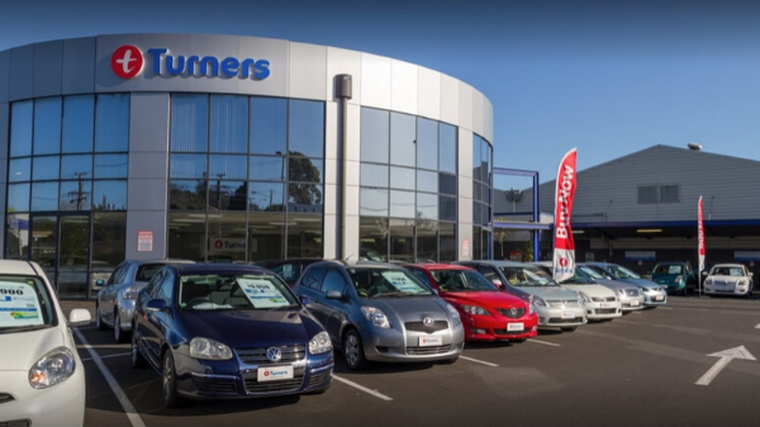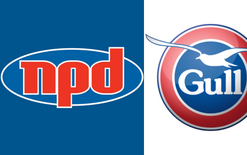Turners posts jump in net profits

Turners Automotive Group has posted an 11 per cent jump in underlying net profit before tax (NPBT) from $26 million to $28.8m for the financial year ending March 31 on the back of a one per cent revenue drop to $333m.
“We are pleased with the growth in underlying profits despite the early impact of Covid-19 in the last six weeks of the financial year,” says Todd Hunter, chief executive officer. “We set about at the beginning of the financial year to really push for organic growth. We have achieved that in three of our four businesses and were on-track [for] four out of four until Covid-19 hit.”
He adds automotive retail has continued to grow retail market share and the company has increased the numbers of “owned inventory” sold by eight per cent year on year, but a reduction in consignment business and impact of Covid-19 has resulted in a small decrease in revenue.
Finance revenues have grown after directing Turners origination into Oxford Finance. Insurance revenue has reduced due to the one-off impact of property sale in the 2018/19 financial year and further-risk optimisation being run through the portfolio.
“We expect consolidation in this industry and we note that during the GFC, the number of dealers reduced by around 15 per cent. Turners is in a strong position to grow market share.”
Reported net profit before tax (NPBT) was at $29.1m. This was in-line with guidance of $28-$30m and stable on FY19 NPBT of $29m in the previous financial year. NPAT was $21m, down from $22.7m. Underlying NPBT increased by 11 per cent to $28.8m. This increase was driven by gains made in the insurance, finance and credit divisions, partially offset by a small drop in automotive retail due to coronavirus.
Reported earnings per share was down eight per cent to 24.4 cents “largely reflecting a higher effective tax rate, while shareholder equity decreased to $223m from $226m as of March 31.
Hunter describes the team response at Turners to Covid-19 as having been positive. “Our business was hit hard during April with a 57 per cent drop in revenue compared to April 2019. However, the business recovered faster in May than our scenario planning suggested in April.
“In April three out of four businesses were profitable and in May all four businesses were. Group profit excluding the government wage subsidy was a loss of $424,000. In May, this improved significantly to $1.58m and June overall is tracking ahead of June 2019 in almost every critical measure.
“Set against the unprecedented backdrop of a high level of uncertainty, we identified priorities at the end of March.” These were ensuring the safety of staff and customers, ensuring the business could survive and emerge from a three to six-month lockdown, avoiding a dilutive capital raise if possible, and positioning the company to take advantage of the opportunities that will arise.
“We are now focused on the opportunities to grow this business,” says Hunter. “We’ve been successful in reducing costs through rental relief, government wage subsidies, staff reducing hours and using annual leave, travel and other expenditures.
“The used-car market has shown considerable resilience in previous downturns and early indications are supporting this theme. We know customers will be more likely to trade with businesses that have a strong brand and reputation like Turners, and we believe this is the time to build market share.
“We will continue to de-risk the finance business following a substantial improvement in credit quality over the past two years. Over and above our standard finance receivable provisions, an additional Covid-19 overlay of $1m has been applied to mitigate any potential increase in credit losses over the next 12 months. With insurance, we are focused on distribution and cost and claims management.”
Used-car market ‘softens’
When it came to automotive retail, revenue was unchanged at $224.9m year on year as operating profit of $13.8m came in 24 per cent lower than $18.3m in 2018/19. Underlying segment profit was $13.3m compared to $14.9m.
Hunter says: “Turners’ strategy of retail optimisation and continued transition of wholesale to retail is continuing to deliver growth in retail market share. During all of 2019/20, we observed a softening of the used-car market due to reduced consumer confidence and this decline was suddenly exacerbated during late February and March 20 due to the pandemic.
“There has been a cyclical reduction in consignment vehicles – down 26 per cent – through the Turners business in 2019/20. However, this reduction was somewhat offset by an increase in sales of owned inventory – up by six per cent – with average gross profits per unit up 12 per cent to $529. The FY19 results included a one-off property settlement gain of $3.4m.”
Turners will continue to focus on “optimisation of footprint”. It will be leaving its main Penrose “supersite”, pictured, in December 2020. Around the same time, it will bring on-stream new retail sites in Westgate and Mt Richmond, which “will enable a better retail experience for our customers. Penrose was established as a wholesale auction facility 20 years ago and is no longer appropriate in terms of a cost base or customer experience”.
Hunter adds: “We have successfully integrated Buy Right into Turners Cars business over the year. We started with the brand consolidation early in FY20. This has been extended to core IT and operational systems, which will enable further efficiencies.”
Turners’ BuyNow retail sales were down by about 0.5 per cent year on year, “which considering the impact of Covid-19 we were pleased with”. A new Dunedin branch at double the previous footprint, and new sites in Westgate and Mt Richmond should see further gains made in retail sales over the next one to two years depending on the speed of recovery in the economy”.
Damaged vehicle units were up by 12 per cent with some gains from existing insurance vendors and one-off events, such as the Timaru hailstorm and flood-damaged cars from SkyCity.
Finance bolsters books
Revenue at Oxford Finance rose by four per cent to $45.7m in 2019/20, operating profit came in at $12.2m for a 10 per cent jump and underlying segment profit was $12.1m – up from $10.3m.
“The finance business had an excellent year,” says Hunter. “This reflects our increasing focus on lending to higher-quality borrowers. We introduced three-tier risk-pricing in August 2019, which has enabled us to be much more targeted towards high-quality borrowers and tighten up at the lower end of the quality range.
“Premium-tier risk now accounts for 11 per cent of our total existing book and on a new lending basis and is about 30-40% of new lending each month. The introduction of comprehensive credit reporting alongside negative reporting is proving to be a strong combination of data to help us profile borrowers.
“Turners Cars’ loan origination is going well and we are earning more margin in the group as a result of this. Turners Cars ledger is now up to $52m and is performing exceptionally well on lending quality metrics.
“We also completed the strategic review process for Oxford during the year. While there was significant interest in Oxford above the book value of the business, in the board’s view the offers received did not fully reflect the intrinsic value of the business, both today and especially factoring in the planned organic growth. We are pleased to have such a strong annuity business within the group at this time and have funding and equity capacity to continue growing this business over the next few years.”
Insurance division takes hit
On the flipside, Autosure in Turners’ insurance division, saw revenue tumbled by nine per cent to $44.1m and operating profit nosedived by 25 per cent, while underlying segment profit came in at $6.2m – up 19 per cent from $5.2m – due to continued improvements in risk pricing and reduction in claims-loss ratios resulting from a new software and “procurement initiatives”.
General gross-written premium (GWP) fell by seven per cent to $36.8m as a result of market conditions and focusing on lower-risk portfolios and vehicles, while 2018/19 segment profit for insurance included a one-off property gain from sale of $3m. The combined claims-loss ratio for was 62 per cent compared to 64 per cent in FY19, while the MBI loss ratio was 66 per cent compared to 75 per cent.
“All originators are now transitioned to a new retail policy generation system and we continue to review dealers’ portfolio performance for risk pricing,” says Hunter. “Our Reserve Bank culture and conduct review work was completed with initiatives implemented ensuring we are closer to end-users, and understand customer outcomes and experience in a more detailed way.
“The distribution partnership announced with Heartland Bank and our respective brands, Autosure and MARAC, is now implemented and working well. We are working on similar models of distribution with a number of other organisations, which involves deep integration of our insurance system into their front-end sales system. This is an area where we will continue to invest in.”
As for EC Credit Control, revenue came in at $17.9m, which was a drop of one per cent, while operating profit was $6.5m – up by three per cent.

Looking ahead to 2020/21
“As with many businesses, there are many environmental unknowns that we will be operating in over the next 12 to 24 months,” says Hunter. To that end, the company has outlined five strategic themes.
1. Accelerate market share growth: Turners currently maintains six per cent market share of used-car retail transactions and will concentrate on increasing this through optimising branch networks, creating new consignment relationships, expanding its retail footprint and taking advantage of market consolidation.
2. Leverage the high trust Turners brand: “Our scale offers multiple advantages and trust will be even more important in the new economy.”
3. Diversified business: Turners is diversified geographically and “has the advantage of annuity and activity-based revenues. These were demonstrated during lockdown and will be proven in near to medium-term performance”.
4. Digital advantage: Turners’ digital platform with the second most-visited automotive website in the New Zealand behind Trade Me. It will continue to make material investment in technology, data and digital marketing.
5. Balance sheet capacity supports growth: Turners says it is well-positioned from a funding and capital perspective to take advantage of growth opportunities into the future. The board sees this as a strong comparative advantage.
Outlook and guidance
“We expect some fallout in the dealer segment as the year progresses,” says Hunter. “Dealer numbers have been in decline for the past two years. We expect this decline to accelerate further over the next 12 to 24 months. We know this is a good time to be pushing hard for gains in retail market share
“At beginning of lockdown, we modelled out three scenarios and we are thus far tracking above the best case. April and May trading have been significantly better than what we expected as we moved through alert levels faster than anticipated. The benefits of laser focus on costs, rent reductions and wage subsidy have been material.
“The value of having a diversified business both geographically and from a revenue stream perspective is of huge benefit. The offset of having annuity revenue businesses are proving valuable in turbulent times. Also, the used-car industry is a relatively good industry to be operating in given it is largely domestic focused and has demonstrated resilience during previous downturns.
“Due to the level of unprecedented uncertainty in the economy, it will be difficult to issue guidance for FY21. We will update over coming months with progress, and plan to give guidance once the macro-environment plays out more clearly.”
Dividend for 2019/20
The board deferred the third-quarter dividend payment in March as a cautionary step due to the uncertainty surrounding the length of lockdown.
“Now that we have April and May behind us, and a better understanding of how business is tracking, the board has declared a final fully imputed dividend incorporating the third-quarter deferred dividend of 6c per share resulting in full year dividends of 14c.
“The board believes this best ensures our ability to navigate the volatility and the optionality to take advantage of any upcoming opportunities. Based on a FY20 pay-out of 14c, this represents a gross dividend yield of 9.8 per cent at an indicative share price of $1.98. The board’s intention at this stage is to continue dividend pay-outs at the level of the current policy for FY21, which is 60-70 per cent of net profit after tax.”





